Find Help
More Items From Ergsy search
-
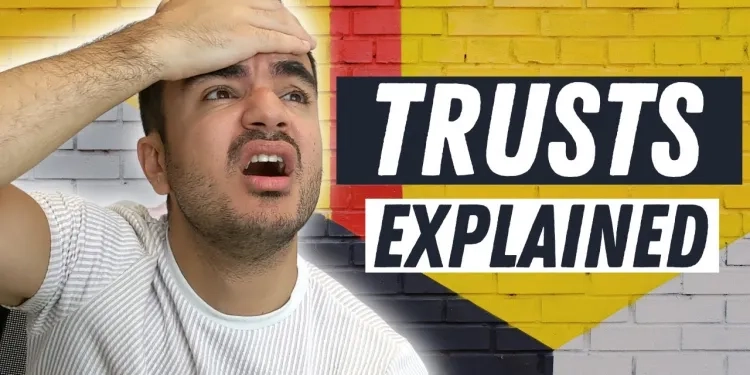
TRUSTS EXPLAINED I HOW TO PROTECT FAMILY ASSETS
Relevance: 100%
-
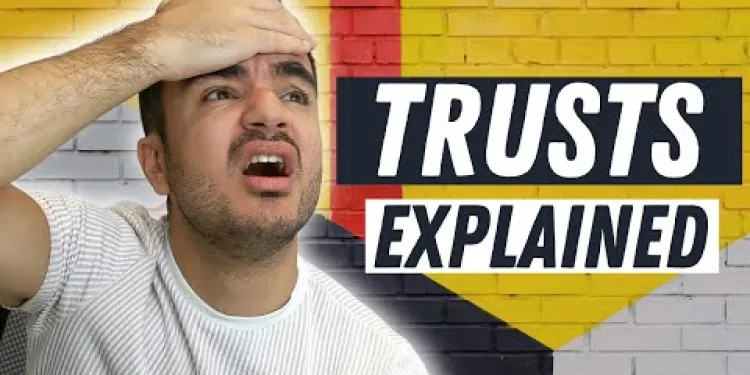
How To Protect Family Assets | Trusts Explained UK
Relevance: 96%
-

What assets are subject to inheritance tax?
Relevance: 45%
-

What is a breach of trust?
Relevance: 44%
-
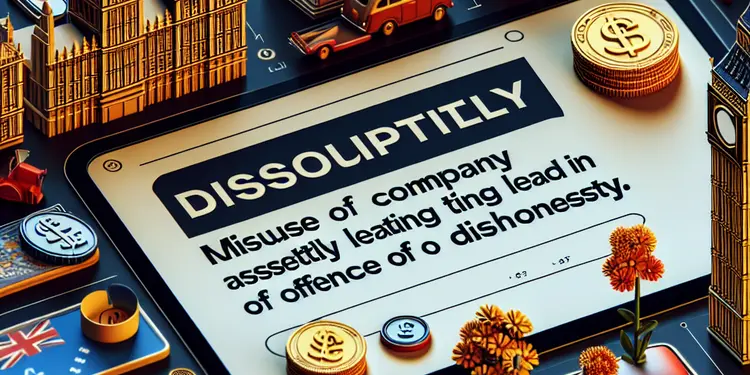
Can misuse of company assets be an offence of dishonesty?
Relevance: 44%
-
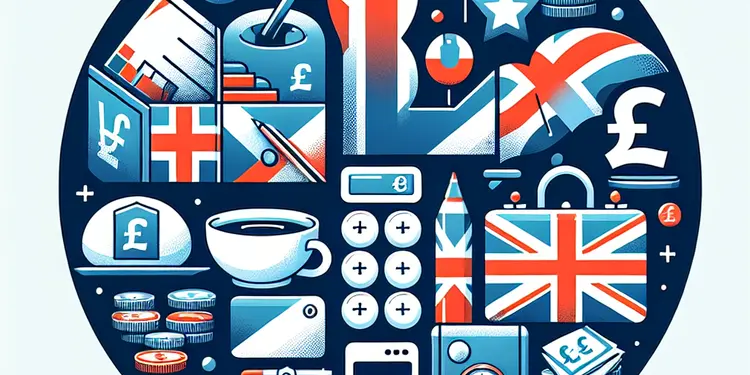
Is there any relief for business assets in Inheritance Tax?
Relevance: 44%
-

Would a wealth tax apply to foreign assets?
Relevance: 40%
-
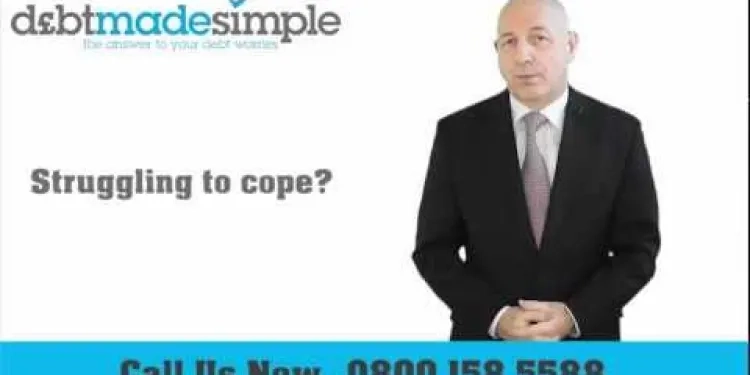
www.DebtMadeSimple.co.uk - Trust Deeds, Debt Arrangement Schemes, and Bankruptcy Services
Relevance: 37%
-
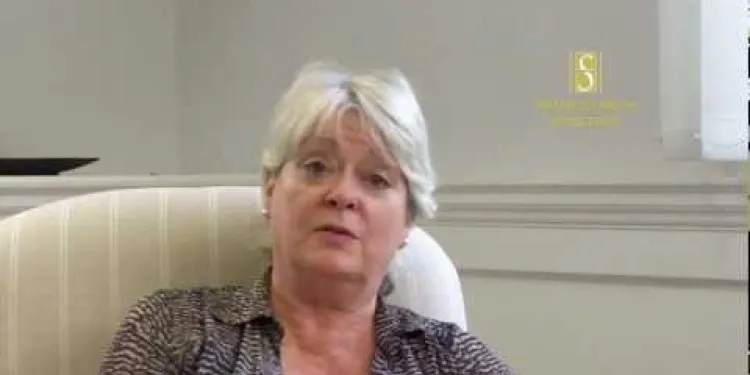
Court of Protection
Relevance: 36%
-

What is the National Trust?
Relevance: 35%
-
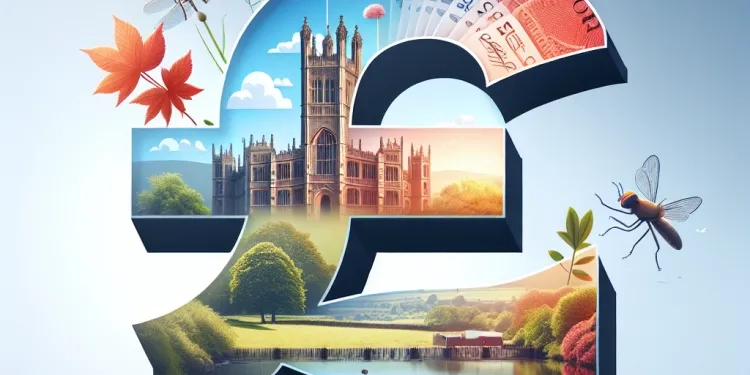
Are there seasonal jobs with the National Trust?
Relevance: 35%
-
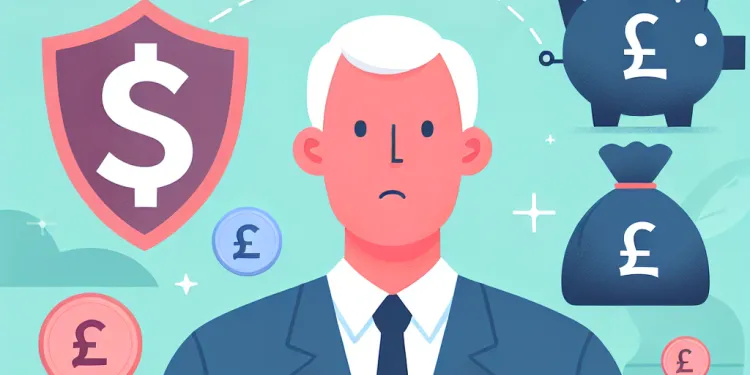
What is the Pension Protection Fund?
Relevance: 33%
-

Can the executor use the deceased's assets to pay tax debts?
Relevance: 33%
-

What are National Trust Jobs?
Relevance: 33%
-

How can the elderly protect themselves from scams?
Relevance: 31%
-

Crypto Scams Exposed - Protect Your Investments Now!
Relevance: 31%
-

What if the estate does not have enough assets to pay all tax debts?
Relevance: 30%
-
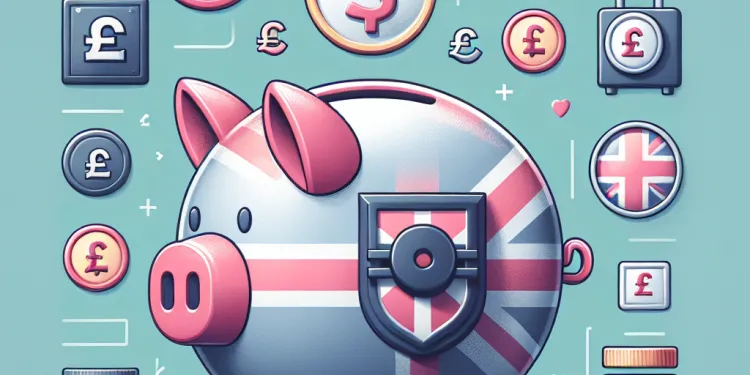
How can individuals protect their retirement savings?
Relevance: 30%
-

Do National Trust jobs require travel?
Relevance: 30%
-

What types of positions are available at the National Trust?
Relevance: 29%
-

How important is family involvement in identifying grooming behaviors?
Relevance: 29%
-

What is the work environment like at the National Trust?
Relevance: 29%
-

Is prior experience required to work at the National Trust?
Relevance: 29%
-

How can I apply for a job at the National Trust?
Relevance: 29%
-

Are defined contribution pensions protected if the provider goes bust?
Relevance: 29%
-
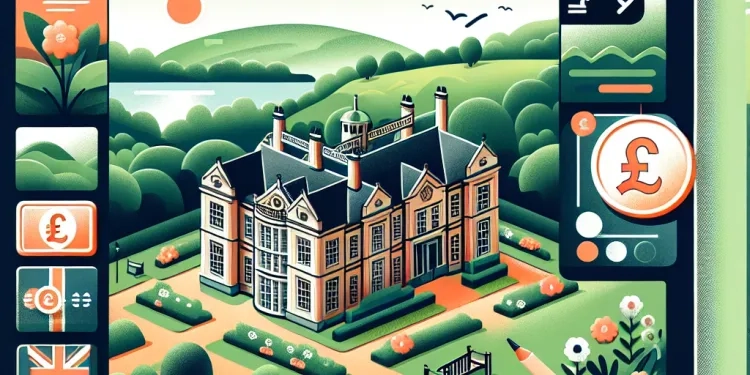
What qualifications do I need to work for the National Trust?
Relevance: 28%
-

The Benefits of Family Activities
Relevance: 28%
-

Can I work for the National Trust part-time?
Relevance: 28%
-
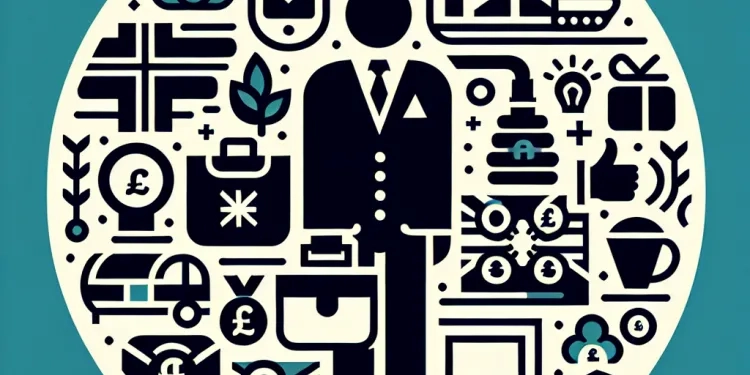
Does the National Trust offer internships?
Relevance: 28%
-
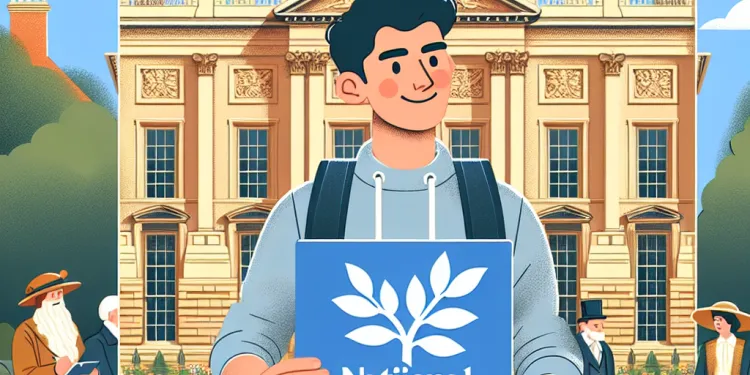
Can I get a job with the National Trust if I am a student?
Relevance: 28%
-
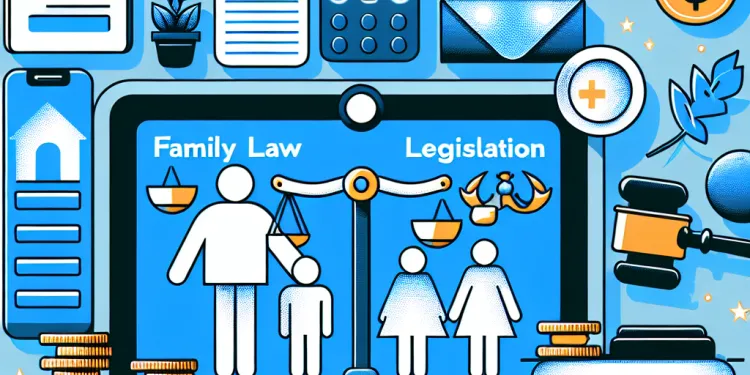
Impacts of Recent Changes to Family Law Legislation
Relevance: 28%
-
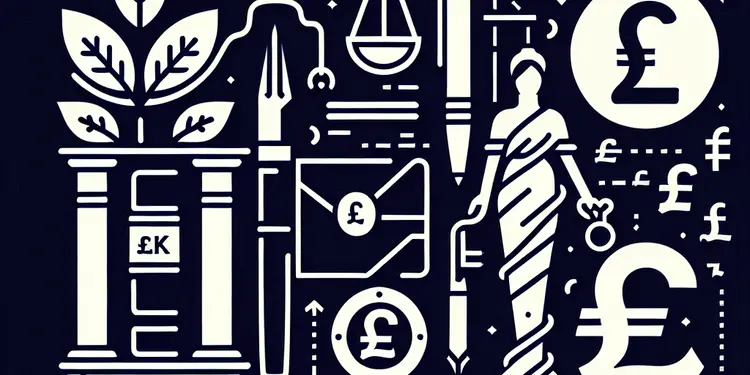
How have prenup agreements been affected by the 2026 family court changes?
Relevance: 27%
-
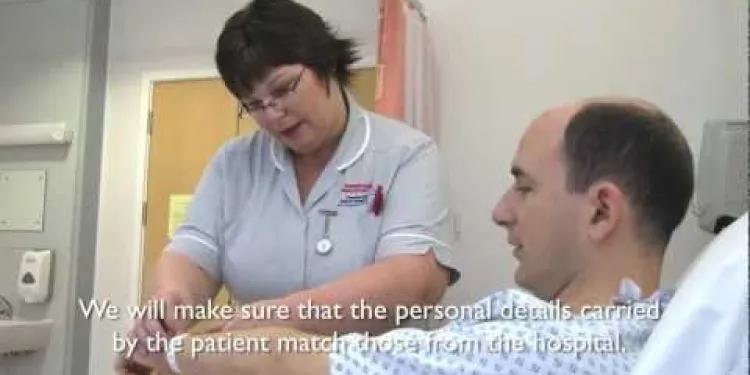
MRSA Screening at Chesterfield Royal Hospital NHS Foundation Trust
Relevance: 27%
-

Your stay on the Intensive Care Unit at North Bristol NHS Trust
Relevance: 27%
-

Are there privacy protections for my medical records?
Relevance: 27%
-

What role does government regulation play in protecting pensions?
Relevance: 26%
-

What age do you have to be to work at the National Trust?
Relevance: 26%
-
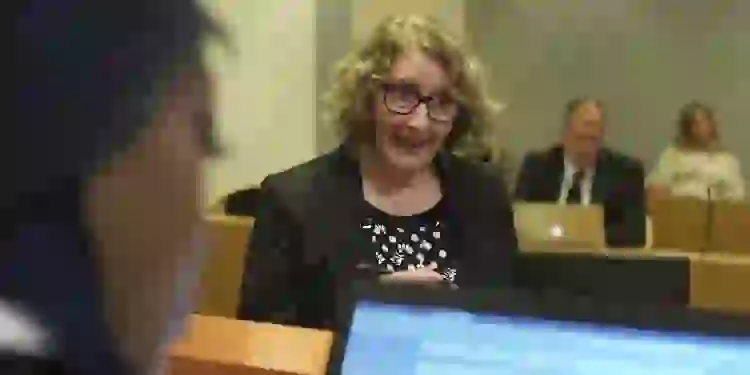
Magistrates in the Family Court: A Public Law Case
Relevance: 26%
-

How does the National Trust support career development?
Relevance: 26%
-

Can international applicants apply for jobs at the National Trust?
Relevance: 26%
How To Protect Family Assets | Trusts Explained UK
Understanding Trusts
A trust is a legal arrangement where one person (the trustee) manages assets on behalf of another (the beneficiary). Trusts are a versatile tool for protecting family assets, providing control over how assets are used and distributed, safeguarding them from potential threats like creditors or divorce settlements. In the UK, trusts can play a crucial role in estate planning and can cater to various financial and familial needs.Types of Trusts in the UK
There are multiple types of trusts available in the UK, each serving different purposes: - **Bare Trusts:** The beneficiary has an immediate and absolute right to both the trust income and the capital. Generally used for children until they reach the age of 18. - **Interest in Possession Trusts:** Beneficiaries have an immediate right to income generated by the trust assets, though not to the assets themselves. Often used for providing income to a spouse for life, with the capital passing to children later. - **Discretionary Trusts:** Trustees have discretion over how to use both the capital and income for beneficiaries. Provides flexible support and protection for beneficiaries, suitable for uncertain future needs. - **Accumulation Trusts:** Trusts where income can be accumulated rather than paid out immediately. Useful for saving funds until beneficiaries are ready to receive them.Benefits of Setting Up a Trust
Setting up a trust offers several advantages, including: - **Asset Protection:** Trusts shield assets from risks such as divorce, bankruptcy, or spendthrift behaviour by beneficiaries. - **Tax Efficiency:** Properly structured trusts can offer tax benefits, reducing inheritance and capital gains tax liabilities. - **Control and Flexibility:** Trusts allow you to dictate terms and conditions on the utilisation and distribution of assets, ensuring family wealth is preserved according to your wishes. - **Confidentiality:** Trusts offer privacy concerning asset distribution, as they are not usually subject to the same public reporting requirements as wills.Steps to Establishing a Trust
To establish a trust in the UK, follow these steps: 1. **Identify Objectives:** Clearly outline why you want to set up the trust and what you aim to achieve. 2. **Choose a Type:** Select the type of trust that best suits your requirements. 3. **Appoint Trustees:** Choose trustworthy individuals or a professional trustee who will manage the trust responsibly. 4. **Define Beneficiaries:** Specify who will benefit from the trust, and how and when they are to benefit. 5. **Draft the Trust Deed:** Work with a legal professional to draft a trust deed, detailing the trust’s terms. 6. **Transfer Assets:** Formally transfer the ownership of the desired assets into the trust. 7. **Register the Trust:** Some trusts need to be registered with HMRC, particularly for tax purposes.Conclusion
Trusts are a powerful means to protect family assets in the UK, providing a combination of control, flexibility, and security. With careful planning and professional advice, you can establish a trust that meets your needs and ensures your family’s financial well-being. Seek assistance from a solicitor or financial advisor to navigate the complexities and optimise the benefits of establishing a trust.How To Protect Family Assets | Trusts Explained UK
What is a Trust?
A trust is a way to manage money or other assets. One person, called a trustee, looks after the assets for someone else, called a beneficiary. Trusts help keep family money safe and decide how to share it. They protect money from things like debt or divorce. In the UK, trusts are useful for planning what happens to your money and belongings.Different Types of Trusts in the UK
There are different kinds of trusts in the UK: - **Bare Trusts:** The person who gets the money or assets can use them right away. Often used for kids until they turn 18. - **Interest in Possession Trusts:** The person can use the money made by the assets, but not the assets themselves. Good for giving money to a husband or wife while they are alive, then to the kids later. - **Discretionary Trusts:** The trustee decides how to use the assets and money for the people who benefit. This is helpful if future needs are uncertain. - **Accumulation Trusts:** Money made can be saved instead of given out right away. Good for saving money until the person is ready for it.Why Set Up a Trust?
There are several reasons to set up a trust: - **Protecting Assets:** Trusts keep money safe from things like divorce or people spending too much. - **Saving on Taxes:** Trusts can help reduce the amount of tax you need to pay when money is passed on. - **Control:** You can decide how and when people get the money or assets. - **Privacy:** Trusts are private, so the details of who gets what are kept secret.How to Set Up a Trust
Here is how you set up a trust in the UK: 1. **Decide Your Goals:** Think about why you want a trust and what you want it to do. 2. **Pick a Type of Trust:** Choose the best kind of trust for your needs. 3. **Select Trustees:** Choose people you trust to look after the assets. 4. **Name Beneficiaries:** Decide who will get the money or assets. 5. **Create a Trust Deed:** Work with a legal expert to write down the trust details. 6. **Transfer Assets:** Move the assets into the trust. 7. **Register the Trust:** Some trusts need to be registered for tax reasons.Conclusion
Trusts are a great way to keep family money safe and make sure it is used how you want. Getting help from a lawyer or financial expert can make setting up a trust easier. They can help you plan and make the most of your trust.Frequently Asked Questions
What is a trust?
A trust is a legal arrangement where one or more 'trustees' are made responsible for assets, which are placed into the trust by the 'settlor'. The trustees hold and manage the assets for the benefit of 'beneficiaries'.
Why should I consider setting up a trust?
You might consider setting up a trust to protect your family assets, manage your estate effectively, mitigate inheritance tax, and ensure your assets are used according to your wishes.
What types of trusts are available in the UK?
There are several types of trusts available in the UK, including Bare Trusts, Interest in Possession Trusts, Discretionary Trusts, Mixed Trusts, Settlor-interested Trusts, and Non-resident Trusts.
Who can be a trustee?
A trustee can be any individual or institution capable of managing the trust responsibly. This can include family members, friends, solicitors, or banks.
What is the role of a trustee?
Trustees are responsible for managing the trust's assets according to the trust deed and ensuring they are used for the benefit of the beneficiaries. They must act impartially and in the best interest of all beneficiaries.
Who can benefit from a trust?
Beneficiaries can be individuals or organizations. They can include family members, friends, charities, or any other entities specified by the settlor in the trust deed.
Can I change the beneficiaries of my trust?
Whether you can change the beneficiaries depends on the type of trust you have set up and the terms outlined in the trust deed. Some trusts allow changes, while others may not.
Is setting up a trust expensive?
The cost of setting up a trust can vary depending on its complexity and the professional advice required. It can involve initial setup fees, ongoing management fees, and possibly tax liabilities.
Do trusts help in reducing inheritance tax?
Trusts can be used to help reduce inheritance tax, but the rules can be complex. Certain types of trusts can qualify for inheritance tax reliefs and exemptions, but it is important to seek professional advice for your specific situation.
How do I set up a trust?
To set up a trust, you will need to decide on the type of trust, identify trustees and beneficiaries, draft a trust deed, and potentially register the trust with HMRC. Seeking legal advice is recommended.
Can a trust be contested?
Yes, a trust can be contested, typically due to disputes about its validity, the intentions of the settlor, or disagreements among beneficiaries. Legal advice may be required to resolve such disputes.
What happens to a trust if a trustee dies?
If a trustee dies, the remaining trustees or a nominated replacement trustee will assume responsibility for managing the trust. The trust deed may specify procedures for appointing new trustees.
Is there a minimum or maximum amount of assets that can be placed in a trust?
There is no legal minimum or maximum amount of assets that can be placed in a trust. However, the costs and benefits of establishing a trust should be considered in relation to the value of the assets involved.
Can I dissolve a trust?
Dissolving a trust depends on the terms of the trust deed and the type of trust. Some trusts may have specific conditions for dissolution; legal advice should be sought to navigate these conditions.
What records should trustees keep?
Trustees should keep detailed records of all trust transactions, decisions made regarding the trust, correspondence related to the trust, and copies of the trust deed and any amendments. Accurate record-keeping is essential for legal and tax purposes.
What is a trust?
A trust is like a special box where you can put money or things. Someone takes care of this box to help other people.
Example: Imagine you put your toys in a box. You ask your friend to take care of the box and give your toys to your little brother when he needs them. Your friend is like a helper who follows the rules you give.
Helpful Tip: To remember what a trust is, think about a treasure chest. It keeps your treasures safe until someone needs them.
A trust is a special way to keep important things safe. One or more people, called 'trustees', look after these things. Another person, called the 'settlor', gives these things to the trust. The trustees hold and manage them for other people, called 'beneficiaries', to help them.
Why should I think about making a trust?
A trust is a way to keep important things safe, like money or a house.
Here are some reasons to set up a trust:
- Protect your money and things for the future.
- Make sure your loved ones, like family or friends, get your things when you are gone.
- A trust can help you pay less in taxes.
- It is a safe and smart plan for your things.
If you need help, you can ask a kind adult or find a lawyer. They can explain more and help you set up a trust. You can also use tools like pictures or videos to learn more.
You can think about making a trust. A trust helps keep your family's things safe. It helps manage what you own when you pass away. It also helps save on taxes. With a trust, you can make sure your things are used the way you want.
What kinds of trusts can you find in the UK?
A trust is when someone takes care of money or things for someone else.
Here are some types of trusts in the UK:
- Bare Trust: The person who gets the money can use it whenever they want.
- Interest in Possession Trust: The person gets money from the trust now, but someone else gets it later.
- Discretionary Trust: The people running the trust decide who gets the money and when.
- Accumulation Trust: Money is saved to give out later.
- Mixed Trust: This trust has parts of the other trusts mixed together.
It helps to ask someone who knows about trusts, like a lawyer, to explain more.
In the UK, there are different kinds of trusts. Here are some examples:
- Bare Trusts
- Interest in Possession Trusts
- Discretionary Trusts
- Mixed Trusts
- Settlor-interested Trusts
- Non-resident Trusts
If you find this hard to read, tools like screen readers can help read out the text. You can also use apps that simplify words or give picture clues.
Who Can Be a Trustee?
A trustee is a person who helps look after something important. They help with things like money and making good choices.
Who Can Be a Trustee?
- People who are older, like adults.
- People who can make good choices and are good at helping others.
- People who want to help with big projects or ideas.
Here is how you can become a trustee:
- Talk to others who are already trustees.
- Learn about what a trustee does and how to help.
- Be ready to meet and talk with other people in the group.
Helpful tools:
- Ask a friend or family member for help to understand more.
- Use pictures or drawings to remember what a trustee does.
A trustee is someone who takes care of a trust. This person can be a family member, a friend, a lawyer, or a bank. They must be able to do this job well.
What does a trustee do?
A trustee is a person who looks after things for someone else.
They take care of money, property, or other things for a group or person.
Trustees make sure everything is safe and used in the right way.
If you want help to learn more, you can use pictures or ask a friend to explain.
The trustees look after the trust's money and things. They follow the rules written in the trust paper. They make sure these are used to help everyone who benefits from the trust. Trustees must treat everyone fairly and do what is best for all beneficiaries.
Who can a trust help?
Beneficiaries can be people or groups. They can be family, friends, charities, or other groups that the trust creator chooses in the trust document.
Can I change who gets money from my trust?
Yes, you can change who gets the money or things in your trust. Here are some simple steps to help you:
- Talk to a lawyer: They can help you understand the rules.
- Write down the changes: Keep it clear and simple.
- Use tools like checklists: They can help you remember everything.
Changing a trust can be easy with the right help!
If you can change who gets the trust money depends on two things: the kind of trust you have and the rules written in the trust papers. Some trusts let you make changes, but others do not.
Does it cost a lot to make a trust?
A trust is a way to protect money or things you own for someone special.
To make a trust, you might need help from a lawyer.
Lawyers can be expensive, so making a trust can cost money.
Sometimes, the price depends on how much work the lawyer needs to do.
You can ask the lawyer to tell you how much it will cost before you start.
If money is tight, you can look for free advice places or ask a charity for help.
Planning ahead and knowing the costs can make it easier to decide.
Setting up a trust can cost different amounts of money. It depends on how complicated it is and if you need help from a professional. You might have to pay fees at the start, fees to keep it going, and maybe some taxes too.
Can trusts help pay less inheritance tax?
A trust is a way to keep money or things safe for someone.
When a person dies, their family might need to pay money to the government. This is called "inheritance tax."
Sometimes, using a trust can help the family pay less inheritance tax.
If you want to know more, ask a grown-up like a lawyer or money expert for help.
Trusts can help you pay less inheritance tax. But the rules can be tricky. Some trusts can get you special tax relief. It's a good idea to ask a tax expert for help with your situation.
How do I set up a trust?
A trust is a way to keep and look after money or things for someone else.
Here are some simple steps to set up a trust:
- Talk to a lawyer: A lawyer is someone who knows the law. They can help you with the trust.
- Choose what to put in the trust: You can put money, a house, or other things in a trust.
- Pick a trustee: This is the person who will take care of the trust. It can be you or someone else you trust.
- Decide who gets the trust: This is the person or people who will get the trust in the end.
- Write down your plan: The lawyer can help you write all of this down in a legal paper.
If you have trouble reading, try these tips:
- Read slowly and take your time.
- Ask someone you trust to help you understand.
- Use tools that read the text out loud.
To make a trust, follow these steps:
1. Decide what kind of trust you want.
2. Choose who will look after the trust. These people are called trustees.
3. Decide who will get the benefits from the trust. These people are called beneficiaries.
4. Write a trust deed. This is a special paper that says how the trust will work.
5. You might need to tell HMRC about the trust.
It's a good idea to ask a lawyer for help.
Can you argue about a trust?
A trust is a way to keep and look after money or things for someone else.
Sometimes, people might not agree with what is in a trust.
If you don't agree, you can argue about it in a special place called a court.
Talking to a helper like a lawyer can be a good way to understand more.
Using pictures or making a list can also help you think about what to do.
Yes, people can argue about a trust. This might happen because they think it is not real, they are unsure what the person who made the trust wanted, or they do not agree with each other. You might need a lawyer to help fix these problems.
What happens if a person in charge of a trust dies?
A trust is like a safe place for money or things.
A trustee is a person who looks after the trust.
If the trustee dies, it means they cannot look after the trust anymore.
Another person may need to be chosen to become the new trustee. This way, the trust is still taken care of.
It's important to have a plan for what to do if this happens. A plan can help everyone know what to do next.
You can ask an adult for help to understand this. They can use pictures or simple sentences to explain.
When a trustee dies, the other trustees will take over the work. If needed, a new trustee can be chosen to help. There might be special rules for picking a new trustee in the trust deed.
How much money or things can you put in a trust?
There is no smallest or biggest amount you need to put in a trust. You can put as much or as little as you want.
Here are some tips to help understand:
- Read slowly and take your time.
- Ask someone to help explain things if you need it.
- Use a dictionary or online tool if you don’t understand a word.
You can put any amount of money or things you own into a trust. There is no smallest or biggest amount you have to use. But, think about how much it costs to make a trust and what you get from it. This helps to see if it's a good idea for what you have.
Can I end a trust?
Do you have a trust and want to end it? A trust is like a special box that holds money or things. Sometimes you can end a trust and take things out of the box.
To end a trust, you might need to ask a person called a trustee. The trustee helps manage the trust. You might also want to talk to a lawyer. A lawyer is someone who helps with rules and legal stuff. They can tell you what to do step by step.
If you want help, you can:
- Use a website that explains steps simply.
- Watch videos that show how trusts work.
- Ask a friend or family member to help you understand.
To end a trust, you need to look at the rules set in the trust papers. Trusts are different, and some have special rules for how they can be ended. It's a good idea to talk to a lawyer to help understand these rules.
What papers should trustees keep?
Trustees help look after important things for a group or charity. They need to keep certain papers safe.
Here are some papers trustees should keep:
- Money papers: Keep notes about money that comes in and goes out.
- Meeting notes: Write down what you talk about in your meetings.
- Rules: Keep a copy of the group rules or plans.
- Important Letters: Keep letters about big decisions or changes.
Tools and tips that might help:
- Use a calendar to plan when to check papers.
- Keep a notebook to write important things you talk about.
- Ask for help if you don’t understand something.
Trustees need to write down everything they do with the trust. This means they should keep notes of all the money they spend or receive, the choices they make about the trust, any letters or emails about the trust, and copies of the trust rules and any changes to these rules. Keeping good records is very important for the law and for taxes.
Useful Links
This website offers general information and is not a substitute for professional advice.
Always seek guidance from qualified professionals.
If you have any medical concerns or need urgent help, contact a healthcare professional or emergency services immediately.
Some of this content was generated with AI assistance. We’ve done our best to keep it accurate, helpful, and human-friendly.
- Ergsy carfully checks the information in the videos we provide here.
- Videos shown by Youtube after a video has completed, have NOT been reviewed by ERGSY.
- To view, click the arrow in centre of video.
- Most of the videos you find here will have subtitles and/or closed captions available.
- You may need to turn these on, and choose your preferred language.
- Go to the video you'd like to watch.
- If closed captions (CC) are available, settings will be visible on the bottom right of the video player.
- To turn on Captions, click settings .
- To turn off Captions, click settings again.
More Items From Ergsy search
-

TRUSTS EXPLAINED I HOW TO PROTECT FAMILY ASSETS
Relevance: 100%
-

How To Protect Family Assets | Trusts Explained UK
Relevance: 96%
-

What assets are subject to inheritance tax?
Relevance: 45%
-

What is a breach of trust?
Relevance: 44%
-

Can misuse of company assets be an offence of dishonesty?
Relevance: 44%
-

Is there any relief for business assets in Inheritance Tax?
Relevance: 44%
-

Would a wealth tax apply to foreign assets?
Relevance: 40%
-

www.DebtMadeSimple.co.uk - Trust Deeds, Debt Arrangement Schemes, and Bankruptcy Services
Relevance: 37%
-

Court of Protection
Relevance: 36%
-

What is the National Trust?
Relevance: 35%
-

Are there seasonal jobs with the National Trust?
Relevance: 35%
-

What is the Pension Protection Fund?
Relevance: 33%
-

Can the executor use the deceased's assets to pay tax debts?
Relevance: 33%
-

What are National Trust Jobs?
Relevance: 33%
-

How can the elderly protect themselves from scams?
Relevance: 31%
-

Crypto Scams Exposed - Protect Your Investments Now!
Relevance: 31%
-

What if the estate does not have enough assets to pay all tax debts?
Relevance: 30%
-

How can individuals protect their retirement savings?
Relevance: 30%
-

Do National Trust jobs require travel?
Relevance: 30%
-

What types of positions are available at the National Trust?
Relevance: 29%
-

How important is family involvement in identifying grooming behaviors?
Relevance: 29%
-

What is the work environment like at the National Trust?
Relevance: 29%
-

Is prior experience required to work at the National Trust?
Relevance: 29%
-

How can I apply for a job at the National Trust?
Relevance: 29%
-

Are defined contribution pensions protected if the provider goes bust?
Relevance: 29%
-

What qualifications do I need to work for the National Trust?
Relevance: 28%
-

The Benefits of Family Activities
Relevance: 28%
-

Can I work for the National Trust part-time?
Relevance: 28%
-

Does the National Trust offer internships?
Relevance: 28%
-

Can I get a job with the National Trust if I am a student?
Relevance: 28%
-

Impacts of Recent Changes to Family Law Legislation
Relevance: 28%
-

How have prenup agreements been affected by the 2026 family court changes?
Relevance: 27%
-

MRSA Screening at Chesterfield Royal Hospital NHS Foundation Trust
Relevance: 27%
-

Your stay on the Intensive Care Unit at North Bristol NHS Trust
Relevance: 27%
-

Are there privacy protections for my medical records?
Relevance: 27%
-

What role does government regulation play in protecting pensions?
Relevance: 26%
-

What age do you have to be to work at the National Trust?
Relevance: 26%
-

Magistrates in the Family Court: A Public Law Case
Relevance: 26%
-

How does the National Trust support career development?
Relevance: 26%
-

Can international applicants apply for jobs at the National Trust?
Relevance: 26%


